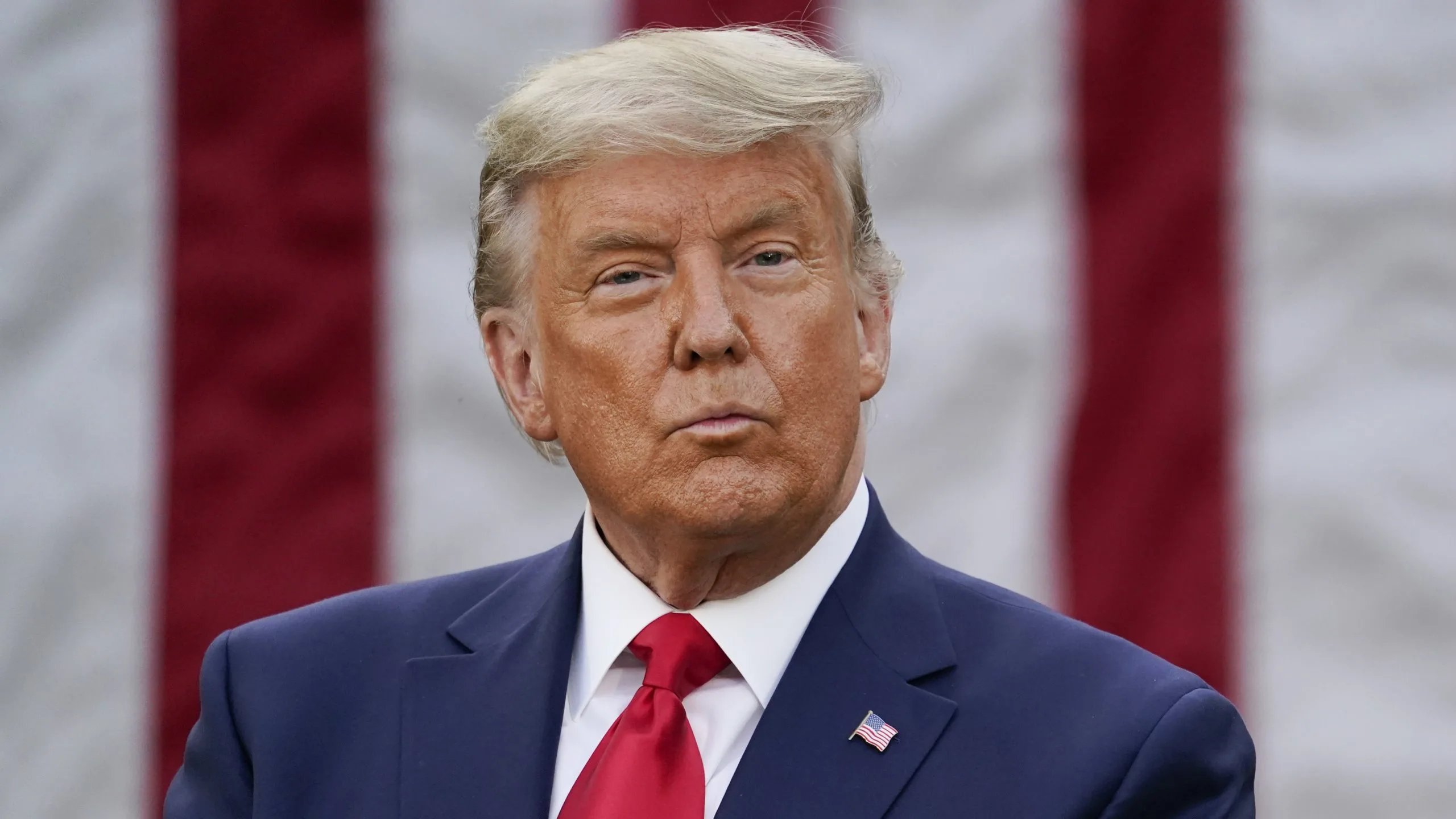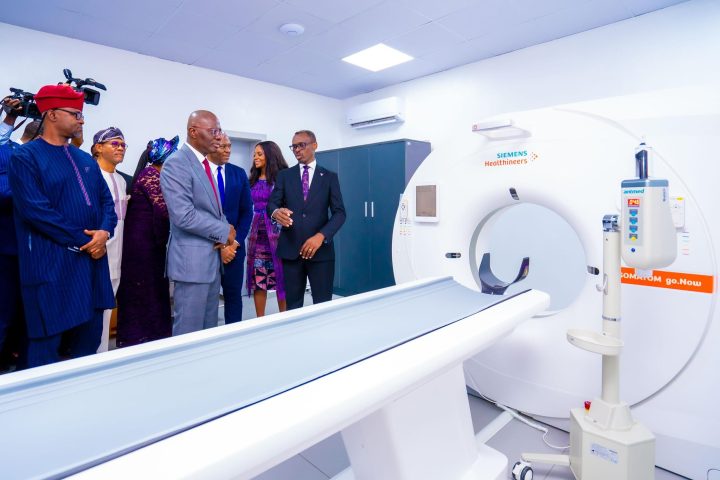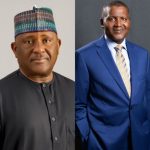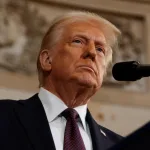President Donald Trump is making bold moves three weeks into his second term. From proposing U.S. control over Canada and the Gaza Strip to imposing new tariffs and renaming the Gulf of Mexico, his actions are shaping policies at home and abroad. Here’s a look at Trump’s key decisions so far.
Trump Becomes First Sitting President to Attend Super Bowl
President Donald Trump made history on Sunday by becoming the first sitting U.S. president to attend the Super Bowl. Speaking with reporters before and after the game, Trump outlined several ambitious proposals, including a push to bring Canada under U.S. control and a controversial plan for the Gaza Strip.
Join our WhatsApp Channel“I think Canada would be much better off being a 51st state,” Trump said during an interview with Fox News Channel’s Bret Baier on Sunday.
Trump also suggested that the U.S. should seize control of the Gaza Strip, a war-torn region currently at the centre of a longstanding conflict.
“Think of it as a big real estate site, and the United States is going to own it,” Trump said while speaking aboard Air Force One.
READ ALSO: Trump To Announce New 25% Tariffs On Steel, Aluminium Imports
Trump Declares ‘Gulf of America Day’
As part of his efforts to “restore American pride,” Trump signed a proclamation declaring February 9 as “Gulf of America Day.” The order renames the Gulf of Mexico, a move that Trump says is about recognising the role of the U.S. in North American history.
“We’re making history again. The Gulf of Mexico will now be called the Gulf of America,” Trump announced. “It’s about pride. It’s about American greatness.”
Trump’s Tariff Plans Affect China, Mexico, and Canada
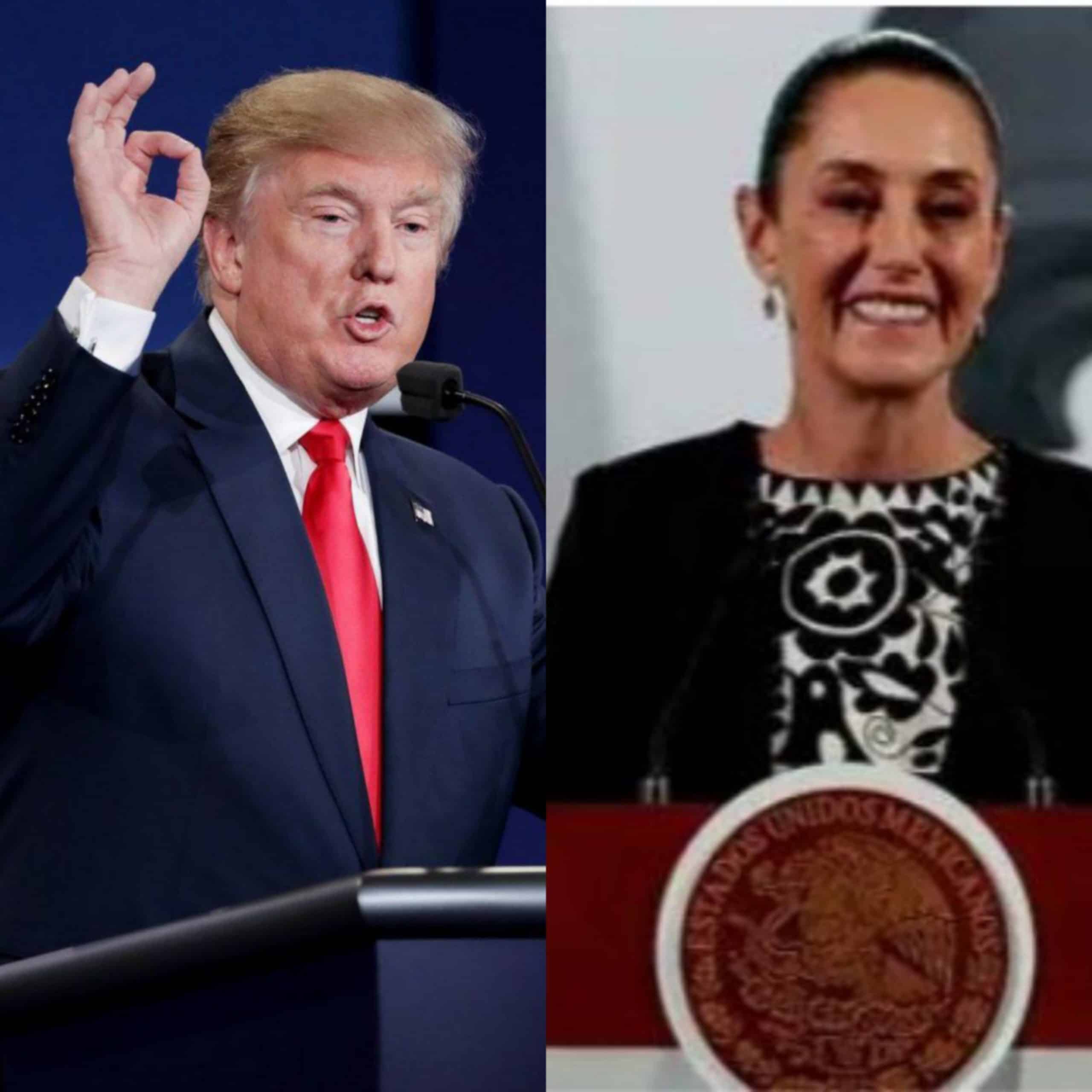
Starting Monday, American consumers will face higher costs on certain goods as China responds to Trump’s recent tariffs. These retaliatory tariffs include a 15% tax on U.S. coal and natural gas and a 10% tax on oil and large machinery.
Meanwhile, Trump is planning additional tariffs this week, targeting China, Mexico, and Canada. His administration will introduce a 25% global tax on steel and aluminium imports. “Very simply, if they charge us, we charge them,” Trump said aboard Air Force One.
Trump argues that tariffs serve as leverage to pressure other countries on issues like immigration and drug trafficking. He also sees them as a way to generate revenue and reduce the budget deficit. However, many economists warn that these measures could lead to higher prices and inflation in the U.S.
On Friday, Trump delayed tariffs on small-value packages from China, including products from companies like Temu and SHEIN, saying the U.S. needs a better system to collect those tariffs before implementation.
Consumer Protection Agency Put on Hold
The Consumer Financial Protection Bureau (CFPB), the agency created after the 2008 financial crisis to protect consumers from predatory financial practices, is currently at a standstill.
Russ Vought, White House Budget Director and the architect of Project 2025, has halted all CFPB work, including investigations and new regulations. Recent CFPB efforts include capping bank overdraft fees and restricting data brokers from selling personal information.
Vought defended the move, stating, “The CFPB is weaponised, woke, and anti-business.”
However, the Supreme Court recently ruled that the agency is constitutional. Since the CFPB is funded by the Federal Reserve and not Congress, lawmakers would need to pass a bill to dissolve it or deny its funding.
Trump’s Government Efficiency Plan Faces Legal Battles
The Trump administration’s newly created Department of Government Efficiency (DOGE), led by billionaire Elon Musk, faced a mix of victories and setbacks in court.
Over the weekend, a judge refused to block Musk from accessing computer systems at the Labor Department. However, another judge ruled against DOGE’s attempt to access Treasury Department records tied to Social Security and bank account numbers.
Musk argued that the access was necessary to identify and eliminate government waste.
Another legal battle will unfold on Monday, as a judge hears arguments on whether a proposed federal buyout of over two million government workers is lawful.
Vice President and Defense Secretary on International Trips
Vice President JD Vance and Defense Secretary, Pete Hegseth, are making their first international visits in their new roles, focusing on artificial intelligence and the war in Ukraine.
Hegseth is heading to Germany on Monday, followed by meetings in Belgium and Poland with NATO allies and the Ukraine Defense Contact Group.
Vance, meanwhile, is in France for an artificial intelligence summit. He will also travel to Germany to attend the annual Munich Security Conference.
Emmanuel Ochayi is a journalist. He is a graduate of the University of Lagos, School of first choice and the nations pride. Emmanuel is keen on exploring writing angles in different areas, including Business, climate change, politics, Education, and others.

